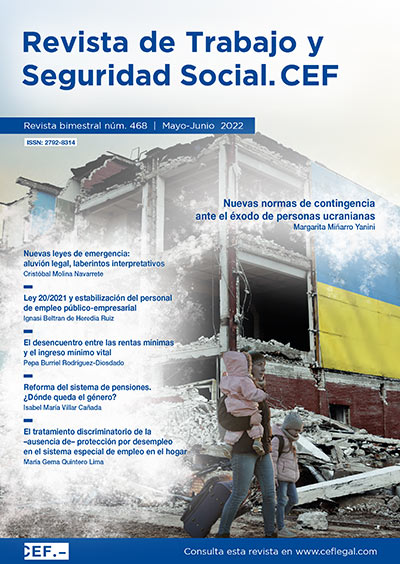The discriminatory treatment of the –absence of– unemployment protection in the special home employment system
Commentary on the Ruling of the Court of Justice of the European Union of 24 February 2022 (case C-389/20)
DOI:
https://doi.org/10.51302/rtss.2022.4071Keywords:
domestic service work, family home, discrimination, unemployment, special system, contribution, informal employment, fraud, social helplessnessAbstract
The Court of Justice of Luxembourg in the Judgment of February 24, 2022, resolves a preliminary ruling atypically raised by a contentious-administrative court in which the possible indirect discrimination present in the current regulation of the special system of people employed in the home was call in question. In this special system of the general Social Security scheme, there is no provision for coverage of legal situations of unemployment and, therefore, it is not posible to contribute for a such need situation. To the extent that the group of people registered in said system is predominantly female, the court must analyze the different and disadvantageous treatment of the Spanish regulations, as well as rule on the existence of a legitimate purpose of social policy that eventually could justify them. Having verified the unequal treatment, as well as the absence of reasonable justification, the Court of Justice of the European Union concludes that the current article 251 d) of the General Law of Social Security is indirectly discriminatory and contrary to article 4.1 of Directive 79/7/CEE. The list of valuations by attorney general Maciej Szpunar has permeated the ruling, which contains a novel analysis of discrimination from a meta-legal critical approach. The pronouncement opens the door to a plethora of subsequent legal possibilities, which have not taken long to be evidenced in the Spanish judicial activity.



















